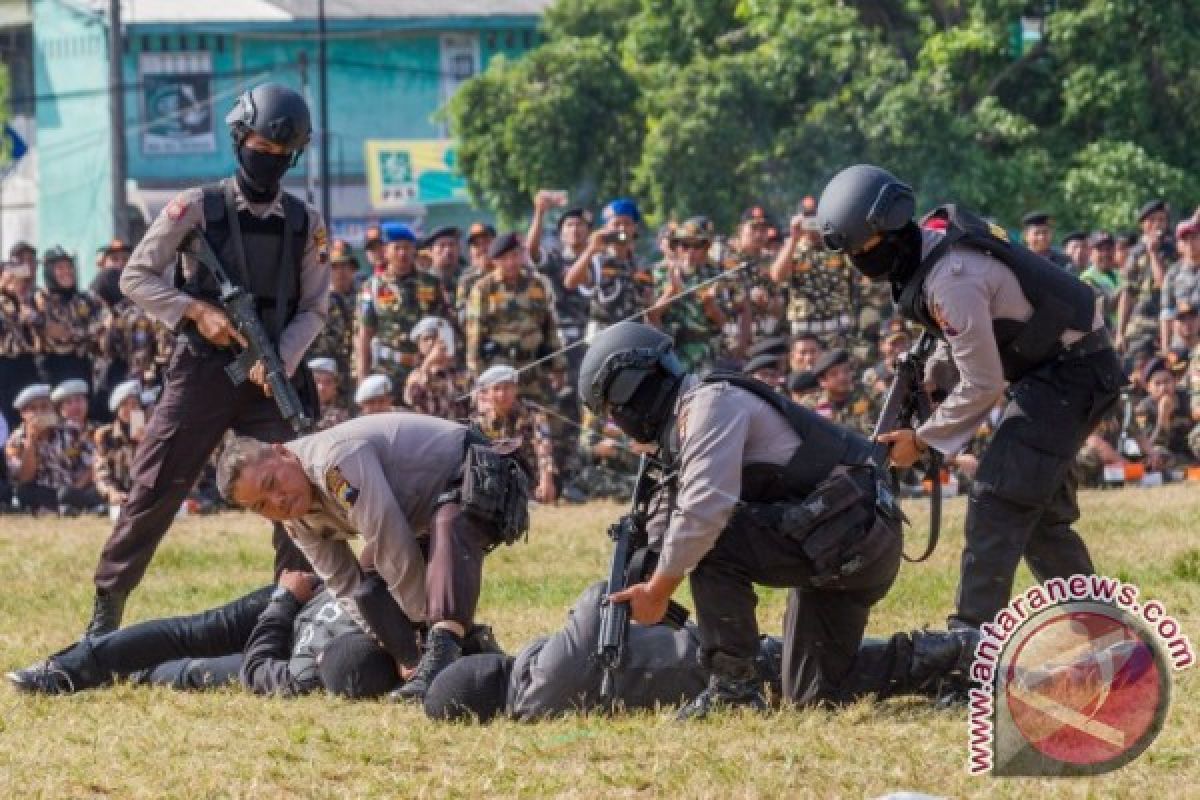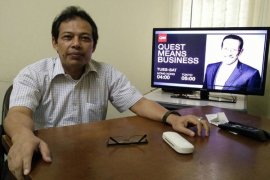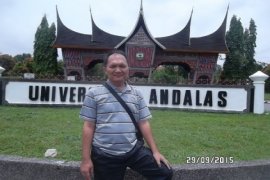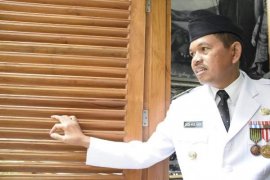The threat of terror in Indonesia still feels tense and becomes the scourge of various circles, because the terror group is not deterrent continue to attempt to disrupt the security and security in Indonesia, including there is a motive to disrupt the Jokowi government. Even the rumors that developed radical groups in Indonesia cynically assess the planned visit of the Secretary General of the Communist Party of Vietnam, Mr Nguyen Phu Trong to Indonesia on 22 to 24 August 2017.
Although the actual response and reaction of radical groups who will conduct rallies related to this visitation plan can be considered unreasonable because of the communism has been agreed upon the people of Vietnam as their country ideology, just as the people of Indonesia have believed the Pancasila as the state ideology. Rejecting visits by prominent communist-country leaders to Indonesia is similar to showing Indonesia's face as intolerant and promoting racism so that it could damage bilateral relations. Therefore, the demonstration plan to reject the arrival of the Secretary General of the Vietnam Communist Party to Indonesia is clearly an unfortunate activity, as it does not analyze its regional and global effects.
The fact that there is a lack of proportional response from radical groups in Indonesia regarding the visit of the Secretary General of the Communist Party of Vietnam, Mr Nguyen Phu Trong is clearly an indication that radical groups can turn into terror groups even on a non-severe scale.
Another fact is that three inmates of terrorism cases in prison cell prison class IIB Tulungagung refused to attend the ceremony of the 71nd anniversary of the Independence of Indonesia along with hundreds of other inmates. The three prisoners named Edi Fahrizal, Ridwan Sungkar, and Noim Baasyir are not even willing to follow the deradicalization program offered by the National Agency for Combating Terrorism (BNPT). Information circulating, all three do not want to join the deradicalization program because it worries the safety of their family members.
Next is the information that dozens of mosques in 16 provinces in Indonesia are accused of supporting terrorist group Islamic State of Iraq and Syria (ISIS). Accusations of support for ISIS, including the ideology and recruit militants to go to Suriah.Media Australia, ABC.net.au, reveals there are 41 mosques in 16 provinces in Indonesia which is the object of a study undertaken on behalf of the Government of Indonesia. Of these, 16 mosques in seven provinces were accused by the research team as supporters of the ISIS group. The research team did the study by sneaking secretly into places of worship.
Data from the Center for Radicalism and Deradicalisation Studies says audio recordings containing radical teachings can not be given to the media, because they belong to the Government of Indonesia. In his research, identified three types of mosques. First, the public mosque used by ISIS sympathizers without the knowledge of the board. Secondly, the mosque where its administrators are associated with the ISIS-affiliated group, but the congregation does not. Third, the private mosque where the board and the congregation both support the ISIS group.
Social Media and Terror
Six countries joined in the meeting of Sub-Regional Meeting on Foreign Terrorist Fighters and Cross Border Terrorism (CBT FTF SRM) in Manado, North Sulawesi, will hold the company's social media presence to hunt terrorists. The six countries are Indonesia, Philippines, Malaysia, Brunei Darussalam, Australia and New Zealand. The government will maximize the role of social media to stem the effects of radicalism and terrorism. It was pursued in the wake of the proliferation of terrorist group supporters by using social media. Six countries will invite all social media companies to help fight terrorism and radicalism through messages of peace and tolerance.
Holding Social Media managers in the war against terror groups and eliminating terror groups is a significant step because many facts say terror groups are actively recruiting new members through Social Media, this is derived from the "development of" law enforcement officers against some suspected terrorists arrested throughout Indonesia, as For example, through social media that had been closed by the government, Telegram, AP, suspected terrorists in Rokan Hilir District, Riau, along with a number of other colleagues had recruited as many as 2,000 members in just two years. Subsequently, all members of the social media were asked to contribute their money under the pretext of charity. All members who are members of social media is not only from Riau, but from all over Indonesia. In addition through social media, group members are also called quite actively fundraising through direct field activities.
At the recent G20 meeting all the joined countries declared themselves against terrorism. To combat and hunt terrorism, the six countries joined in the meeting on Foreign Terrorist Fighters and Cross Border Terrorism (SRM FTF CBT) in Manado, North Sulawesi, will hold a social media company (Social Media). The spread of radicalization in social media is very worrying to us. Social Media has played a major role in spreading the influence of radicalism and terrorism. Later, the action of recruiting supporters of terrorist groups by using Social Media has also been very rampant. The Islamic State of Iraq and Syria (ISIS), for example, often uses social media to recruit young people to join the network The.
It is estimated that about 30 thousand people from various countries joined ISIS after being affected by propaganda through the online network. Actively, the administrators / admin accounts of Social Media radical organizations do recruitment, fundraising, or sympathizers. ISIS terrorist groups have at least dozens of online account networks containing various genres of propaganda issues to gain mass sympathy.
Social Media if not managed and controlled appropriately, can turn into a means of mass communication that is so dangerous. NATO in its research has included Social Media as a weapon in hybrid war in addition to other conventional weapons. Through Social Media, an individual, a society, even a state can be mastered by its mindset.
In Indonesia, the existence of Social Media accounts promoting radical ideas, provocative and manipulative information, has been highly visible. The aim is none other than to direct society to certain aggressive acts, such as hatred for certain people, groups, religions, races, ethnicities.
Attempting to filter the radical content by the government is also an important step. The government and providers of Social Media should be able to establish effective cooperation and commit to protect the public interest from exposure to content that endangers the public, especially the content of radical groups and terror. Of course to provide a deterrent effect of law enforcement must be done to drag the spreaders of radical content and terror to the green table.
*) The author is an observer of Indonesia's strategic issues. Living in South Sulawesi.
Social Media and the Recruitment of Terror Actor
Minggu, 3 September 2017 14:37 WIB

Pasukan anti-teror Kalijaga Polres Demak berhasil melumpuhkan teroris saat simulasi keamanan di Alun-alun Demak, Jawa Tengah. (ANTARA FOTO/Aji Styawan/Dok).
The government and providers of Social Media should be able to establish effective cooperation and commit to protect the public interest from exposure to content that endangers the public, especially the content of radical groups and terror.









